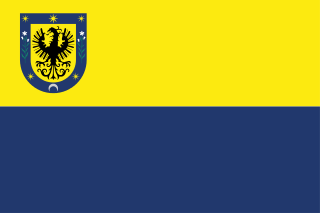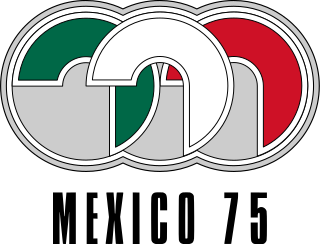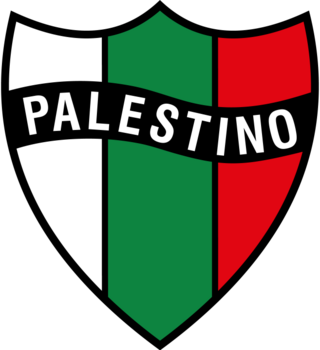This article needs additional citations for verification .(March 2019) |
| |||||
| Decades: | |||||
|---|---|---|---|---|---|
| See also: | |||||
The following lists events that happened during 1892 in Chile .
This article needs additional citations for verification .(March 2019) |
| |||||
| Decades: | |||||
|---|---|---|---|---|---|
| See also: | |||||
The following lists events that happened during 1892 in Chile .

Chile, officially the Republic of Chile, is a country in western South America. It is the southernmost country in the world and the closest to Antarctica, stretching along a narrow strip of land between the Andes Mountains and the Pacific Ocean. Chile had a population of 17.5 million as of the latest census in 2017 and has a territorial area of 756,102 square kilometers (291,933 sq mi), sharing borders with Peru to the north, Bolivia to the northeast, Argentina to the east, and the Drake Passage to the south. The country also controls several Pacific islands, including Juan Fernández, Isla Salas y Gómez, Desventuradas, and Easter Island, and claims about 1,250,000 square kilometers (480,000 sq mi) of Antarctica as the Chilean Antarctic Territory. The capital and largest city of Chile is Santiago, and the national language is Spanish.
February 12 is the 43rd day of the year in the Gregorian calendar; 322 days remain until the end of the year.

Salvador Guillermo Allende Gossens was a Chilean socialist politician who served as the 28th president of Chile from 1970 until his death in 1973. As a socialist committed to democracy, he has been described as the first Marxist to be elected president in a liberal democracy in Latin America.

The 1930 FIFA World Cup was the inaugural FIFA World Cup, the world championship for men's national football teams. It took place in Uruguay from 13 to 30 July 1930. FIFA, football's international governing body, selected Uruguay as the host nation, as the country would be celebrating the centenary of its first constitution and the Uruguay national football team had successfully retained their football title at the 1928 Summer Olympics. All matches were played in the Uruguayan capital, Montevideo, the majority at the purpose built Estadio Centenario.

Valparaíso is a major city, commune, seaport and naval base facility in Valparaíso Region, Chile.

Concepción is a city and commune in south-central Chile, and the geographical and demographic core of the Greater Concepción metropolitan area, one of the three major conurbations in the country. It has a significant impact on domestic trade being part of the most heavily industrialized region in the country. It is the seat of the Concepción Province and the capital of the Bío Bío Region. It sits about 500 km south of the nation's capital, Santiago.
Gringo (masculine) or gringa (feminine) is a term in Spanish and Portuguese for a foreigner. In Spanish, the term usually refers to English-speaking Anglo-Americans. There are differences in meaning depending on region and country. In Latin America, it is generally used to refer to non-Latin Americans. The term is often considered a pejorative, but is not always used to insult, and in the United States its usage and offensiveness is disputed.

The Chile national football team, nicknamed La Roja, represents Chile in men's international football competitions and is controlled by the Federación de Fútbol de Chile which was established in 1895. Chile has appeared in nine World Cup tournaments and were hosts of the 1962 FIFA World Cup where they finished in third place, the highest position the country has ever achieved in the World Cup.

The Peru national football team, nicknamed La Blanquirroja, represents Peru in men's international football. The national team has been organised, since 1927, by the Peruvian Football Federation (FPF). The FPF constitutes one of the ten members of FIFA's South American Football Confederation (CONMEBOL). Peru has won the Copa América twice, and has qualified for the FIFA World Cup five times ; the team also participated in the 1936 Olympic football competition and has reached the semi-finals of the CONCACAF Gold Cup. The team plays most of its home matches at the Estadio Nacional in Lima, the country's capital.

Colo-Colo, officially Club Social y Deportivo Colo-Colo, is a Chilean professional football club based in Macul, Santiago. Founded in 1925 by David Arellano, it competes in the Chilean Primera División, from which the club has never been relegated. The team has played its home games at Estadio Monumental David Arellano since 1989. Colo-Colo is regarded as the most successful club in Chilean football.

In association football, a bicycle kick, also known as an overhead kick or scissors kick, is an acrobatic strike where a player kicks an airborne ball rearward in midair. It is achieved by throwing the body backward up into the air and, before descending to the ground, making a shearing movement with the legs to get the ball-striking leg in front of the other. In most languages, the manoeuvre is named after either the cycling motion or the scissor motion that it resembles. Its complexity, and uncommon performance in competitive football matches, makes it one of association football's most celebrated skills.
The 1975 edition of the Copa América football tournament was played between 17 July and 28 October. For the first time there was no fixed venue, and all matches were played throughout the year in each country. In addition, the tournament changed its name from South American Championship to Copa América. For the first time, all ten CONMEBOL countries participated, with defending champions Uruguay receiving a bye into the semi-finals and the rest starting in the group stage.

The 1975 Pan American Games, officially known as the VII Pan American Games and commonly known as Mexico 1975, were held in Mexico City, Mexico, from October 12 to October 26, 1975, exactly twenty years after the second Pan American Games were held there. It was the third major sporting event held in the Mexican capital in seven years, after the 1968 Summer Olympics and the 1970 FIFA World Cup.

Club Deportivo Palestino is a professional football club based in the city of Santiago, Chile. The club was founded in 1920 and plays in the Primera División de Chile. They play their home games at the Estadio Municipal de La Cisterna stadium, which has a capacity of approximately 8,500 seats.

The Football Federation of Chile is the governing body of football in Chile. It was founded on 19 June 1895, making it the second oldest South American association football federation, and is a founding member of CONMEBOL since 1916. It supervises the Chile national football team, Chile women's national football team, Asociación Nacional de Fútbol Profesional: (National Association of Professional Football, originally called Asociación Central de Fútbol, or ACF, and Asociación Nacional de Fútbol Amateur.

The Chile–Peru football rivalry is a long-standing association football rivalry between the national football teams of Peru and Chile and their respective aficionados. Both teams compete in FIFA's South American Football Confederation (CONMEBOL). Matches between the two nations are keenly contested and their games have a reputation for fierceness in and off the field of play, fueled by political disputes.

The Chile women's national football team represents Chile in international women's football. It is administered by the Federación de Fútbol de Chile and is a member of CONMEBOL. Chile were close to qualification for the FIFA Women's World Cup in 1991, 1995 and 2011 and later finally made the Finals for the first time in 2019. Chile is, along with Brazil, one of the two teams to never fail to qualify for the Copa América Femenina. Chile's friendlies are frequently played against Argentina, who is a traditional rival. The team is currently coached by José Letelier and is captained by goalkeeper Christiane Endler.
French Chileans are Chilean citizens of full or partial French ancestry. Between 1840 and 1940, 20,000 to 25,000 French people immigrated to Chile. The country received the fourth largest number of French immigrants to South America after Argentina (239,000), Brazil (150,341) and Uruguay.
Football is the most popular sport in Chile. The country's history of association football began with English sailors and their boat trips due to various commercial links between Chile and Great Britain in the 19th century.

Afro-Chileans are Chilean people of African descent. They may be descendants of slaves who were brought to Chile via the trans-Atlantic slave trade, or recent migrants from other parts of Latin America, the Caribbean or Africa.